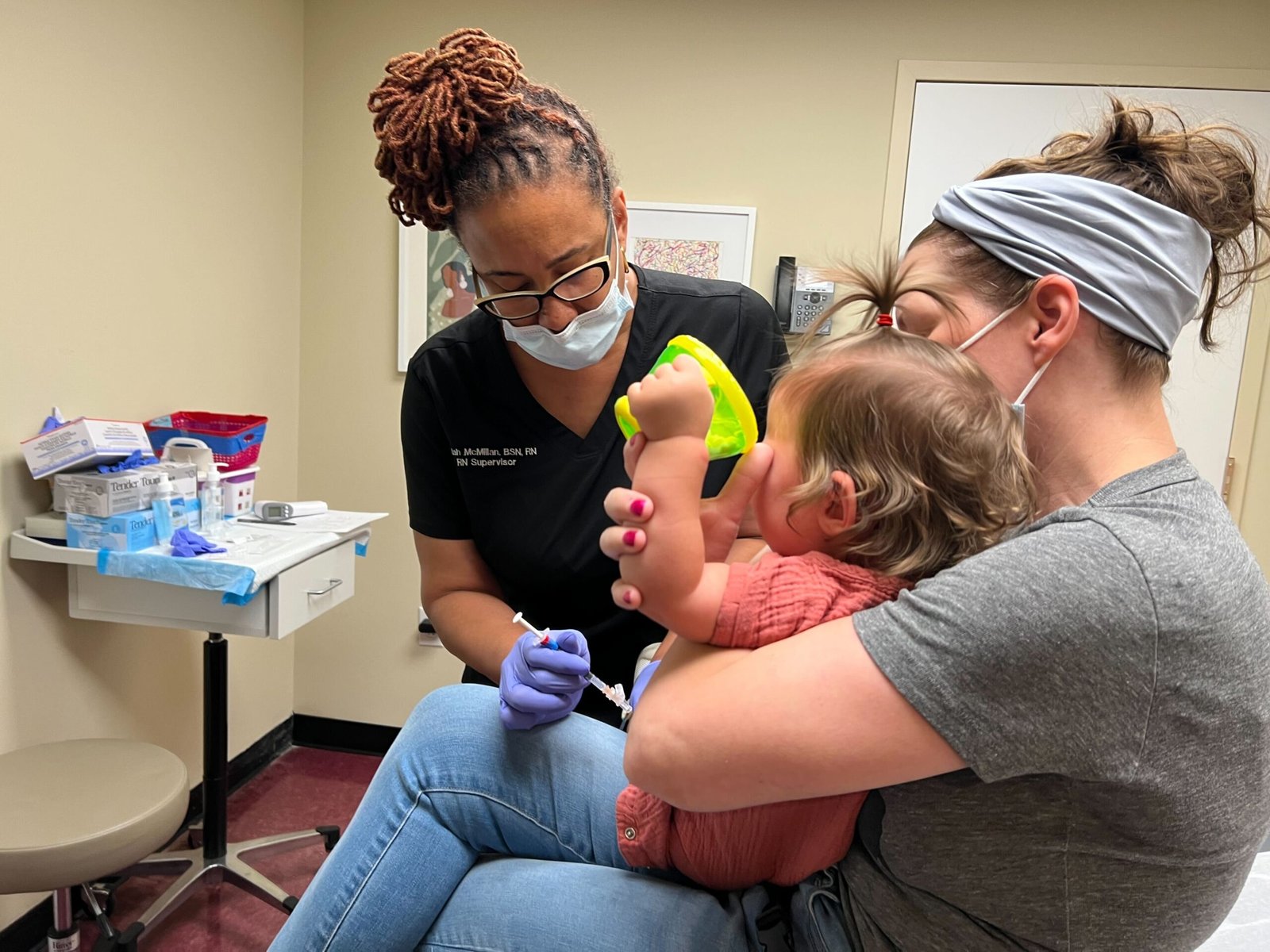Buttenheim studies how beliefs, misinformation, communication, government legislation, and policy shape how people perceive vaccines.
A Kaiser Family Foundation report released last September found that politics and partisanship continue to play a key role in how people view the COVID, flu and respiratory virus vaccines.
Survey data also showed that 68% of all adults and 55% of parents said measles, mumps and rubella vaccines should be required for healthy children to attend school. However, about a third of adults and 43% of parents said parents should be able to decide not to vaccinate their children, “even if it could create a health risk for others.”
Buttenheim said the vast majority of people in the United States are vaccinated against diseases such as measles, polio and meningitis in childhood, as it is a requirement to attend public school.
However, COVID-19 vaccines are optional in many cases. Buttenheim said that has caused more parents and families to think of all vaccines as an à la carte menu, where they can pick and choose individual shots.
“A lot of parents were just like, ‘When I weigh the costs and benefits, it’s not worth it.’ And, oh, if I’m weighing the costs and benefits of the COVID vaccine, maybe I should do it with chicken pox, the chicken pox vaccine, maybe that’s one to skip. Or MMR, we don’t really have that much measles,” she said. “That kind of pick and choose, choose your own adventure approach, it was there before and parents were doing these custom, custom, custom vaccination schedules, but it’s more of that now.
Growing and persistent misinformation online and on social media is also playing into people’s decisions, hesitancy and skepticism around vaccines, said pediatrician Dr. Paul Offit, director of the Immunization Education Center at the Children’s Hospital of Philadelphia.
“People will say, ‘I’ve done my research and I’ve decided not to get this vaccine,’ but what does research really mean?” said Offit. “Research really just means looking at other people’s opinions online.
Offit said misrepresentations about vaccinations, or confused and confusing instructions about them, as seen with the COVID shots, have caused some mistrust of medical services and led patients to question their advice.
“Try this message in the 21st century: ‘Trust us, we’re the experts.’ Not working,” Offit said.
While the COVID-19 vaccines have been successful in getting to market quickly and preventing serious illness, Offit said efforts to schedule these shots in health care facilities, workplaces and various other settings have backfired somewhat.
“It was just seen as another example of government overreach and they pushed back,” he said. “And now, legally, there’s been a reversal.”
Some states are trying to push through legislation banning any COVID-19 vaccine. Buttenheim said some want to take it a step further and weaken or eliminate requirements for preschool vaccinations.
“It’s a big scary thing,” Buttenheim said. “Our school entry mandates for childhood vaccines are why we don’t have high rates of measles, whooping cough, why polio was eradicated.
Other states have moved in the opposite direction to increase vaccination coverage and compliance. In recent years, New York and Connecticut have eliminated personal and religious, or non-medical, exemptions that families had previously been able to use to opt out of all or certain school shootings.
Buttenheim said there is a lot of research and work going on to find out how to better address people’s concerns about vaccines for themselves and their children and how to tailor messages in the exam room or doctor’s office.
“Even just putting in a vaccination like, it’s the default, it’s the office policy, it’s what we do,” she said. “You don’t say, ‘OK, it’s time to talk about vaccines, are you OK with MMR?’ You’re just like, “Baby has five shots today, the nurse comes in and the next thing we’re going to do is give the baby vaccines.” And then if you get a regression, that’s a sign that like, okay, we need to pivot here.
For now, vaccination rates and protection against diseases such as measles, mumps and rubella remain high in states like Pennsylvania, despite declining rates in recent years.
Health experts say they have their work cut out for them in terms of being creative and finding new ways to communicate the benefits of vaccines and the consequences of a weak herd immunity, and to get to the root of people’s belief systems around shots.
“We need to understand how it affects decision-making and we need to understand how to counter it,” Buttenheim said.
#Philly #health #experts #changing #attitudes #vaccines #postCOVID #era
